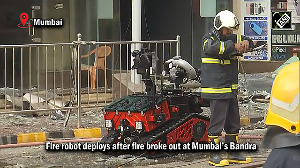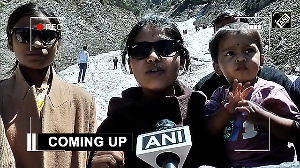Stung by judicial intervention and regulatory raps following recent instances of excesses by recovery agents, private and foreign banks in India are responding fast. As a result, it has just got tougher for low- income earners in urban areas to borrow money from banks.
ICICI Bank, the country's second-largest bank, has stopped lending to borrowers from the sub-prime segment, while the biggest player in small loans, Citigroup, has made its processes more stringent.
ICICI Bank had entered this segment a couple of years ago gradually providing loans as small as Rs 10,000 and has about Rs 2,500 crore of outstanding loans.
B Madhivanan, senior general manager and head-customer service and phone banking at ICICI Bank, said the bank has tightened its credit filters and loan underwriting practices following the recent incidents.
"We have become conservative. Consumers without any credit history will now find it difficult to get loans. We had written to the Reserve Bank of India that we want to exit the small-ticket personal loans business (loans up to Rs 30,000). We have closed down a little over 100 outlets (used to sell loans to small borrowers)," he said.
ICICI Bank was fined Rs 55 lakh by the Delhi Consumer Commission on Monday for employing strong-arm tactics to recover loans.
There are also rumours that Citifinancial is considering shutting down over 150 of its 450 branches. Citigroup now spends more time in interactions with every prospective customer to understand the needs and repayment capacity, and to seek additional documents if required.
The bank's approach is to make face-to-face interactions with customers mandatory. Enquiries about the customer's monthly income and expenses are now rigorously made.
Citigroup advises customers to take a loan that they are capable of servicing efficiently and ensures that monthly installments do not exceed 70 to 80 per cent of surplus income.
Most sub-prime lenders are now panicky as recovery efforts have intensified following a sharp increase in their loan-loss ratio to as much as 30 per cent.
Murali Natrajan, regional head, consumer banking, India & Nepal, Standard Chartered Bank, said the bank is operating in the small-ticket personal loan business with just about 40 outlets of Prime Financial, its non-banking finance arm.
"We have an exposure of less than Rs 200 crore. We were only testing this market. We had understood that this is not an easy business,'' he said.
Banks have now decided to deal with the issue of recovery processes through the Indian Banks' Association, a forum of the banking industry.
A senior IBA official said that the industry is looking forward to guidelines from the RBI. "We are looking at a system for registration and regulation for recovery agents. IBA could have an empanelled list of recovery agents."








 © 2025
© 2025